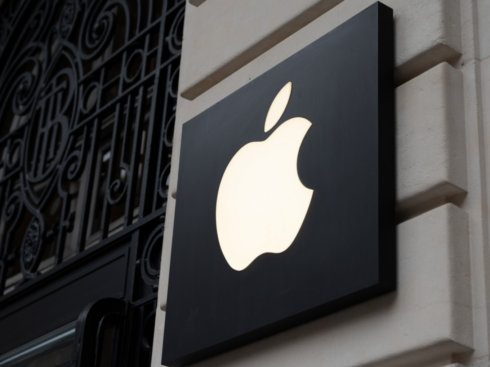
 Melanie Curtin
Melanie CurtinMelanie is Director of Communications for OpiaTalk and hosts a blog on sex & dating in her free time. You can reach her @MelanieBCurtin.
I worked at Uber for close to a year, about a year ago. Frankly, coverage of it in the media lately has annoyed me. As a reminder, I don’t work there anymore. I have no vested interest in this other than my desire for veracity to trump sensationalism. Here are 5 myths about Uber corrected:
Myth #1: Uber has a brogrammer culture (it’s chauvinistic)
I worked at Uber for close to a year and never saw evidence of this. Nowhere. Not from Travis (the CEO), not from my local leadership, not from the legal team, not from the engineering team, not anywhere. In fact, I saw a lot of strong women crushing it in leadership and other positions there.
I did notice that a disproportionate number of GMs (city leads) were men, but this seemed to simply follow the trend of a lot of startups; there are just still a lot of men in leadership. We’ve come a long way, and we’ve got a long way to go.
While I can’t speak for every single woman at Uber, I can say without a doubt that I personally never felt chauvinism there, directed either internally or externally. I also experienced it as a meritocracy; those that excelled moved up, whether male or female.
Myth #2: It hurts Uber when they get negative press
I see things like “Uber has gotten pummeled in the media recently,” and “Poor Uber. They just can’t seem to do anything right this week,” and I laugh.
You want to know what happens when Uber gets negative press? The same thing as when it gets positive press. Truckloads of people go, “What’s Uber?”, research it, and consider downloading the app.
This is the same for most businesses; it doesn’t really matter what you’re in the media for — if a goal is raising awareness of your product or service, all press is good press. Margaret Thatcher used to call this “the oxygen of publicity,” and man, is Uber breathing it in.
Myth #3: Surge pricing exists to gouge riders
It doesn’t. It is an automatic algorithm that goes into effect when demand spikes all at once – for example, rush hour, or when a big concert lets out. The point of surge is not for Uber to make more money or take advantage of people; it’s to keep cars on the road and incentivize drivers. If surge didn’t exist, then when demand spiked, there likely wouldn’t be any cars available at all. Instead, the system is organized so that if you really need a ride right then, you can get one.
It’s also worth remembering that it’s not all about riders. Uber’s driver-partners are not direct employees; they have total autonomy as to when to log onto or off of the app. This means Uber must find ways to encourage them to come out when people need them. Surge pricing increases how much they earn, which means it’s more likely they’ll get out onto the road, which means more rides for more people. As Time reported:
Uber’s Boston team first tinkered with a price hike on weekend nights around 1 a.m., when drivers tended to clock out just as the city’s public transit system approached closing time, a situation that created lots of demand for Uber cars.
In just two weeks they had a resounding answer,” Gurley writes. “By offering more money to drivers, they were able to increase on-the-road supply of drivers by 70-80%, and more importantly eliminate two-thirds of the unfulfilled requests.”
It also annoys me when people complain about surge pricing in ‘normal’ situations (i.e. not Sydney). You all need to simmer down. At this point, it’s double opt-in. First Uber shows you a screen of how much the multiplier is (for example, 1.6x) and the minimum fare at that multiplier. You literally have to tap the button “I ACCEPT HIGHER FARE.” Then, if you do this, you must manually type in the multiplier to confirm the rate.
Sorry, guys: Just because you were drunk and accepted an expensive ride home doesn’t mean Uber is wrong.
Myth #4: There’s a good (or better) alternative to Uber
For better or worse, at least in the U.S., right now there just isn’t. Maybe for those in San Francisco, where Lyft has good coverage, it’s a viable option. But for most of the rest of us, Uber is the most reliable and effective alternative to a taxi industry that is often angry, smelly, inconvenient, dangerous, and difficult to truly regulate, given unlicensed cars that can act and look like legitimate taxis. According to the Gatestone Institute:
… a much acclaimed report produced by the London Metropolitan Police Service estimates that on average there are a total of 1,125 sexual assaults, including rapes, each year involving taxi drivers in just London; this works out to approximately 22 sexual assaults against women by taxi drivers each week in England’s capital city alone.”
[Note that this stat is for *unlicensed* cabs.]
Myth #5: Uber is going to be able to scale smoothly internationally
First, I want to point out how incredibly brave the woman who was raped in New Delhi was. Despite having just been attacked and explicitly threatened by the man who attacked her to not go to the authorities, she still went to the police. This is important for several reasons, including so he can be arrested and not do it again. She has my deepest and most sincere respect and empathy.
Her case also brought up a critical point when it comes to Uber scaling internationally: The practices that work in the U.S. won’t work everywhere. If Uber wants to protect riders to the best of its ability (and I firmly believe it does), it will need to come up with new, practical methods of screening drivers in countries where the institutions aren’t in place to do so easily.
Sriram Krishnan wrote the most intelligent article I’ve read that addresses this. He basically says that for markets like India where background checks are inadequate, Uber and other services need to figure out how to actually keep people like riders safe. In his words:
The idea of Uber doing background checks and “filtering out” this driver with an arrest record is laughable for anyone who has dealt with government records in India. First, there is no reliable way to run a check on someone in most parts of the world and second, even if they did, a small bribe in the right place will fix most records.”
The suggestion in the piece for India was to actually go to a person’s neighborhood and ask around about them; this is obviously neither a scalable nor comprehensive solution.
So how do you effectively screen individuals in a country where bureaucracies are unreliable and/or easily manipulated? What is a good solution? This isn’t rhetorical — I’m actually asking.
This brings me to my last point: There’s a lot of navel-gazing when it comes to those of us tech. It often feels like we’re having too many conversations about things that don’t matter and not enough about things that do. We have an incredibly smart, resourceful, creative cadre of people in this industry, and I’d love to see us spending our precious attention, energy, and innovative idea skills solving meaningful problems. Getting around safely is one of the most basic needs we all have. How can we be part of the solution in terms of safe rides somewhere like India?
I’m not saying we shouldn’t engage in thoughtful dialogue about things like privacy and safety when it comes to a service like Uber. But I also think — and know — that there’s a lot Uber does right, and I get frustrated when it feels like it’s being used as an easy target instead as of a platform for discussion.
If you have a thoughtful, concrete, creative suggestion for how drivers could be better and more effectively screened in a country like India, drop it here or leave it in the comments. We’re all in this together.


























